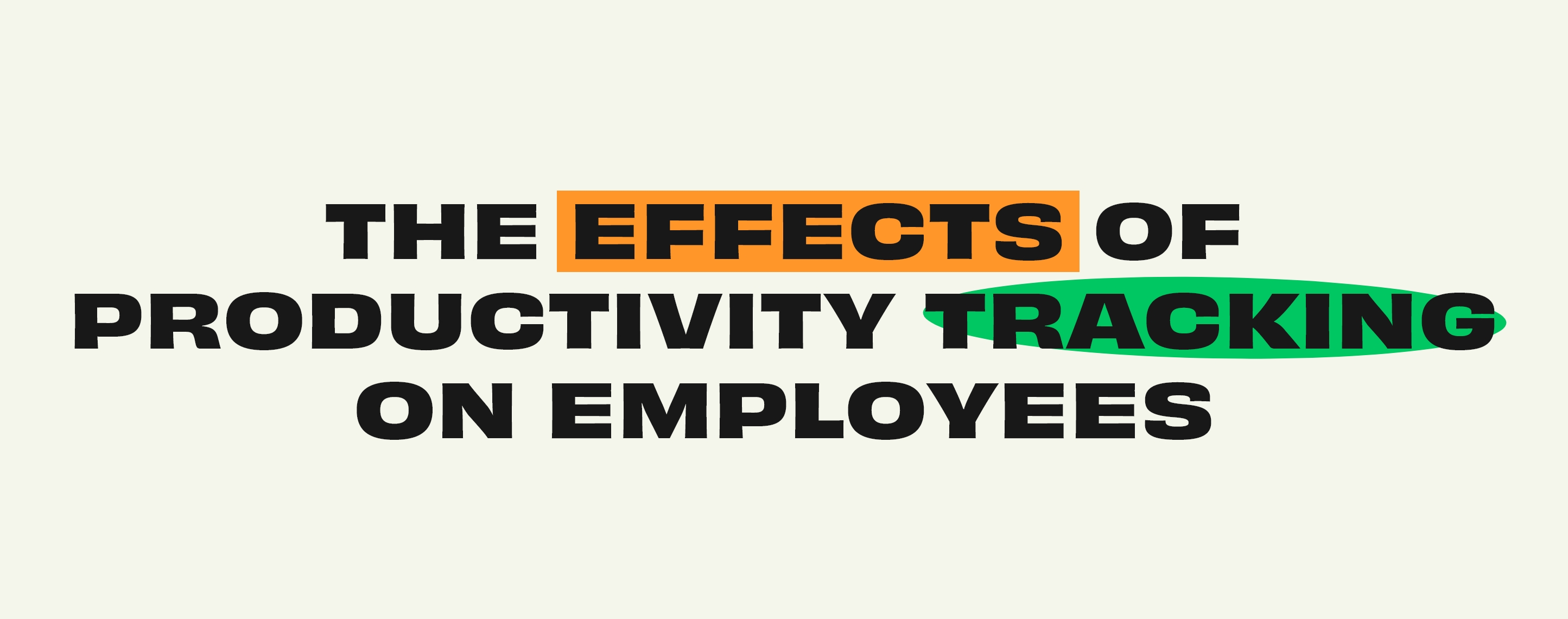
In recent years, employers have been turning to productivity-tracking software to help them monitor their employees’ activity and measure their performance. While this type of digital monitoring can increase efficiency and provide valuable data for employers, it can also increase employee stress and anxiety. In this blog post, we will explore the effects of productivity tracking on employees, from how it affects company culture to its impact on employee productivity rates.
Productivity tracking software is typically used to measure employee activity and engagement. This type of software can track how much time employees spend on tasks, how they use their devices, how long they are active on the computer, and even how productive they are regarding key performance indicators (KPIs). Employers use these insights to identify areas where employees may be underperforming or wasting time. Though this can be helpful for employers and managers in identifying issues that need to be addressed, it can also lead to an environment of intense pressure and surveillance.
On the plus side, productivity tracking tools can provide employers with valuable data that can be used to improve efficiency. It makes it easier to identify areas of improvement and where employees excel, which helps with goal setting and career development. Additionally, tracking productivity allows employers to ensure employees are doing the work they’re supposed to and not wasting time on frivolous activities.
However, there are some potential drawbacks to using these systems as well. For one thing, constant monitoring can create a sense of anxiety amongst employees who feel like they’re being watched all the time. Additionally, if employers rely too heavily on this technology, they may forget the importance of human interaction when motivating their staff. Finally, there are potential privacy concerns associated with collecting personal data from employees without their knowledge or consent.
From an employee perspective, many feel that being monitored by a system goes against their right to autonomy and control at work. They worry that any mistakes or missteps could end up costing them their job or make them look bad in front of their colleagues. Others fear that digital monitoring could be used for purposes outside the scope of business objectives, such as spying on personal behavior or activities unrelated to work duties.
While productivity tracking systems have advantages for employers, companies must consider the potential impact these tools have on employee morale and motivation. Employers should entertain implementing policies surrounding data collection and usage. That way, employees feel comfortable knowing what is being tracked and for what purpose. Additionally, companies should strive for a culture that values collaboration over competition, so workers don’t feel like they’re in a “rat race” trying to outdo each other all the time.
Overall, productivity tracking systems can be beneficial tools for employers. Still, businesses need to ensure they take into consideration the potential effects on both sides before implementing such a system in the workplace. By taking into account both employer needs and employee perspectives when using productivity tracking tools, companies can ensure they get the most out of this technology while respecting individual autonomy in the workplace.

